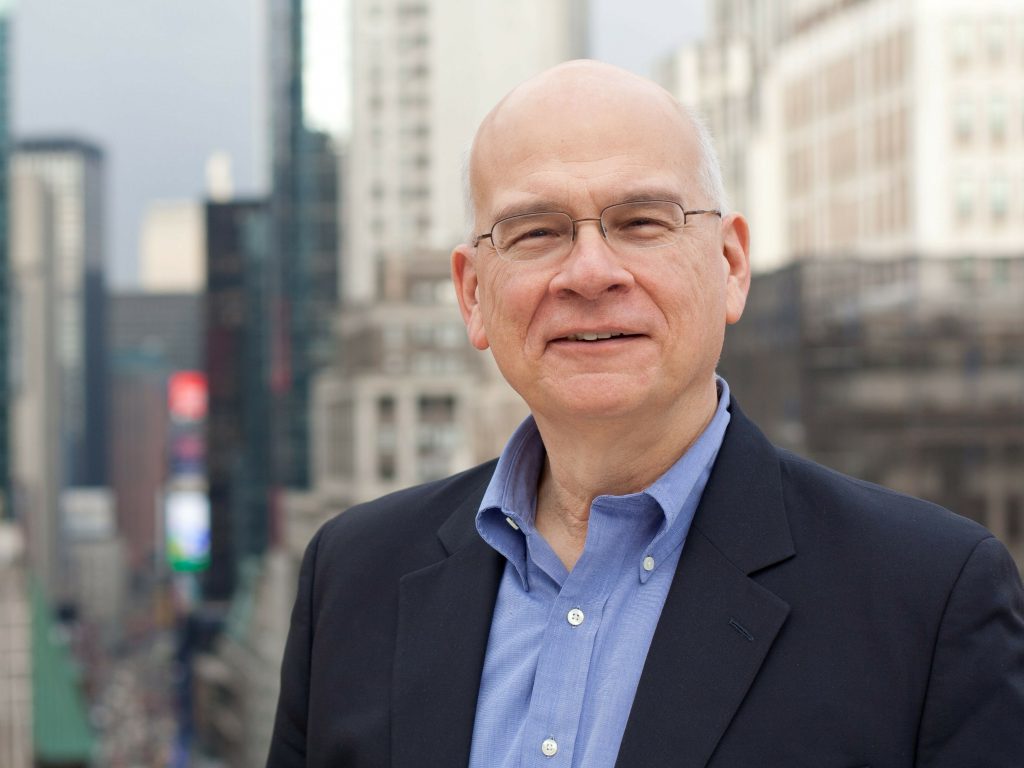
To listen to this reflection as a podcast, click here.
Over the course of a ministry that spanned more than four decades, Tim Keller taught people how to live.
After he was diagnosed with pancreatic cancer in June 2020, Keller began to focus on teaching people how to die – a mission that he completed last Friday morning when he left this world at age 72.
Keller was an unlikely spiritual giant. Tall, professorial, and decidedly uncool from head to toe, he looked more like an accountant than someone likely to thrive in what most observers regard as one of the least receptive places on the planet for orthodox Christianity. His friends thought he was crazy when, in 1989, he left small-town America to plant a new church in mid-town Manhattan.
But the fledgling congregation exploded, soaring from 50 participants to more than 5,000. Redeemer Presbyterian Church has since become the launching pad for a constellation of other churches and related ministries across New York City and the world.
The most stunning feature of Keller’s ministry has been the makeup of his flock. At least 40% of Redeemer’s participants are Asian-Americans. One-third are single adults. Even though “arts and entertainment types” are generally considered impervious to traditional Christian outreach, Broadway artists were drawn to Keller’s teaching.
More than anything else, he displayed a heart for skeptics. Keller spent decades dialoguing with secularists – listening to their concerns, respecting their doubts, providing honest answers to honest questions. Many of his 33 books address the 21st century’s underlying homesickness for God.
He routinely pointed out that our lives are more comfortable than those of any previous generation in history. Why, then, is our culture afflicted with such a pervasive feeling of hopelessness? “The great problem is how to have a human hope that can make sense of death, stand up to death, and help us face the fear of death and even triumph over it.”
The British wit Samuel Johnson once observed, “Depend upon it, sir, when a man knows he is to be hanged in a fortnight, it concentrates his mind wonderfully.”
Given fresh motivation to concentrate his mind wonderfully on what lies beyond the grave, Keller released Hope in Times of Fear: The Resurrection and the Meaning of Easter in the spring of 2021.
He pointed out that human beings are fundamentally hope-based creatures. We all need to know that our stories are leading somewhere. What we believe about the future powerfully controls how we experience the present. Keller reflected, “The deepest desires of our hearts is for love that lasts.”
But that’s the crushing thing about secularism. According to the materialist conception of the universe, all hope of a meaningful and personal future has been erased. Nothing awaits us but non-existence.
A number of years ago I helped lead a celebration of life service. Prior to my eulogy, three friends of the deceased stood and shared memories of their friend. Their remarks were touching. Then they endeavored to provide a word of hope. Their friend wasn’t really gone. Her molecules were being recirculated. She would become part of the grass and the trees. The next time we saw flowers, we would know that was “her.”
But those words did not generate hope. It should come as no surprise that few of us – following a lifetime of soaring joys, deep pains, laughter, tears, music, sunsets, friendships, memorable meals, accomplishments, disappointments, and moments of real love – are comforted by the thought that, in the end, we’re all just going to end up as fertilizer in a flower bed.
I went on to share that same day that the woman whose life we were remembering had recently given her heart to Christ. She had concluded that her story wasn’t going to end in a cemetery.
Tim Keller wrote, “Death used to be able to crush us, but now all death can do is plant us in God’s soil so we become something extraordinary.” He added, “Grieve with hope: Wake up and be at peace: Laugh in the face of death, and sing for joy at what’s coming.”
His son Michael reports that two weeks ago his dad had prayed, “I’m thankful for the time God has given me, but I’m ready to see Jesus. I can’t wait to see Jesus. Send me home.”
Amen.
May God pour his deep peace upon the Keller family and all who will continue to be blessed by Tim’s lifetime of gracious teaching.
